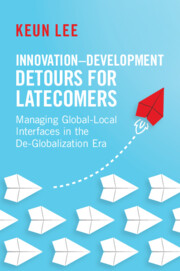
-
- You have access
- Open access
- Cited by 3
-
Cited byCrossref Citations
This Book has been cited by the following publications. This list is generated based on data provided by Crossref.
Juuse, Egert and Karo, Erkki 2024. New Emerging Industries and Alternative Pathways into Global Value Chains: the Case of Estonian Automated Mobility and Delivery Industry. Journal of the Knowledge Economy,
Shi, Junguo Aminu, Mohammed Rashad Dou, Shanshan Alemzero, David and Yan, Wenyi 2025. Exploring Technological Originality and Self-Citation in Wind Energy Innovation: Implications for Technological Impact. Energies, Vol. 18, Issue. 5, p. 1039.
Pantea, Maria-Carmen 2025. Higher Education and Work in the Knowledge Economy. p. 323.
- Publisher:
- Cambridge University Press
- Online publication date:
- February 2024
- Print publication year:
- 2024
- Online ISBN:
- 9781009456234
- Creative Commons:
-
This content is Open Access and distributed under the terms of the Creative Commons Attribution licence CC-BY-NC 4.0 https://creativecommons.org/creativelicenses


